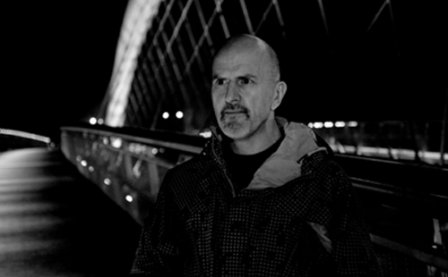One of the most famous problems in medieval theology was the question of how many angels could dance on the head of a pin. Scholars produced a multitude of answers, and the question itself became emblematic of the trivialities that concerned the theologists, so much so that even today critics use it to malign chatter they find pointless or exhausting. But it strikes me that the theologists were looking for angels in all the wrong places. Why would an angel deign to shrink to such minimal size?
In Genesis, and the apocryphal Book of Enoch, the offspring of humans and the fallen angels were giants, and the fallen angels themselves (called Grigori in one text) stood at unfathomable heights. It’s said in Kabbalah lore that if the angel Sandalphon’s feet touched the earth, his head would reach all the way to heaven. What would the voice of such a power sound like? Are the classical composers and New Agers also wrong in their attribution of the high registers to the angelic voice? Of course, there are different orders of angels, some not even human in appearance, and only infinity can limit the power of the highest beings (thus, the origin of the question above: just how limited are their powers over the physical world?), so some angels can make any sound they like. But the angel with the legs as large as pillars in the Revelation spoke with the sound of thunder. It’s the sublime voice of the fallen angels that Lustmord attempts to capture on The Word As Power, using a human voice to invoke and unite with these beings.
The low end on The Word As Power is so deep that many speakers won’t be able to do it justice. In fact, it’s often difficult to tell just how deep it goes, even on good headphones or with a decent sub. Because these compositions exist on two frequency layers, the foregrounded vocals often eclipse the deep bass tones in intelligibility. Layers and layers of reverb also muddle the mixture, but then again, perhaps those depths are not meant for easy parsing. If the abyss were to speak, its language wouldn’t be accessible to human faculties. Even the vocal elements of The Word As Power feel beyond supra-linguistic, as if emerging directly out of the soul of the singer. On “Goetia,” the vocals take on the qualities of ritual utterance, its title referring to the art of calling demonic or angelic beings into the world. “Chorazin” follows, it’s vocal repeating in a formless chant.
As they spin their six-winged bodies about the throne of God, the seraphs endlessly chant the words Holy, Holy, Holy. This is the only action they commit themselves to, even as the highest order of angels. It’s a prayer, not of supplication in hopes of making a personal request, but of recognition, perhaps even blind terror. The word itself is empty, but in its chanting, it continually transforms the singer into a purer vessel, filling the utterance with divine power. But what do the fallen seraphs sing from the deepest reaches of the bottomless pit? This album distinguishes not between holy and unholy but rather the sacred from the profane. From the very beginning of The Word As Power, Lustmord’s tone never drops from solemn reverence, and the vocals never lose the power of sacred speech. This mood suffuses the field recordings and synth textures that lurk beneath the surface, transforming what to some ears might seem featureless ambience into the voices of angelic or demonic choirs, rumbling in the depths of the chasm or the black folds of an approaching thunderhead. Occasionally, ghostly voices issue from the background, joining the vocalist in a seance.
The second half of the album features throat-singing, itself dual-layered, with a resonating bass core and a whistling high harmonic. It’s as if at “Grigori” the vocals have subsumed the double voice of the previous pieces, birthed like a giant from a human mother and a gigantic fallen father. The background textures become percussive, like the massive steps of Behemoth across the Earth’s tectonic plates. It’s when the vocals meld into the morass of ambient texture, relentless footsteps, and gong beats that each track on this album reaches its climax. The voice of the invoked beings seems to possess the vocalist, finally achieving the desired union. There is a kind of simplicity to this structure, such that the performative elements of the vocals are but a shadow play, there to contrast and slowly transform the other sound sources into something intelligible; but this dialectic is the pivot on which The Word As Power turns. It’s the performance of a ritual in various stages that bring the presence of sacred beings into contact with the invoker’s soul. The ultimate danger and ultimate goal are the same: to be devoured by the thundering voice, drowned in awe. “Every angel is terrifying,” Rilke said.
The Word As Power might only have one trick, but it’s one that resonates deeply. Even without the theological and occult sediments encrusting this album, the enveloping walls of sound can strike fear into the heart of any listener. This is not a horror-styled fun fear, but the species of dread that results from realizing that one is incredibly small and insignificant in the face of the vast forces that animate our universe. That which dwarfs us can by its very presence destroy us, and yet it allows us to live, for a time. It’s the presence of the human that marks The Word As Power out from much of the rest of Lustmord’s catalog. Even though we as pitiful wretches seek to be crushed by the powers we invoke, their disdain to destroy us empowers us: that which does not kill us makes us stronger.
More about: Lustmord




